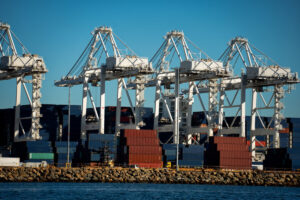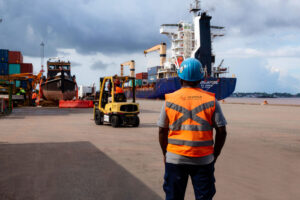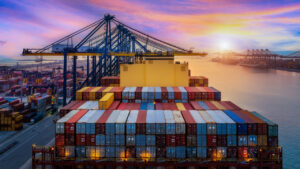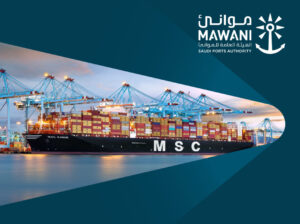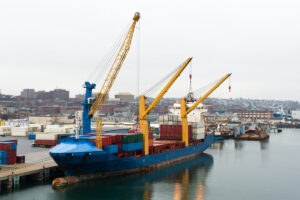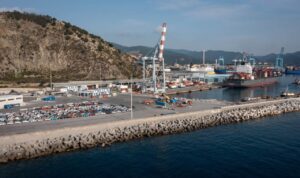In partnership with Inform
DP World’s Head of IT, Que Tran, spoke to Inform in the third part of the Future Vision interviews to discuss the impact of the pandemic on ports and the wider workforce, innovation in the industry today and what disruptive technologies we can expect to see in the decades to come.
Tran acknowledges that the pandemic will indeed lead to a different way of working and attendance at the workplace will become a much more meaningful kind of transaction.
To read the full interview click here
Looking beyond the pandemic and following the timeline of Inform’s book 2038: A Smart Port Story Tran discusses some of the technologies that are innovative and could be poised to cause disruption.
“It’s a fine line from my perspective. I always try to make sure people tread carefully on understanding innovation versus what is adding value. What we’ve seen is probably a lot of innovation over the last 10 or 20 years, but rarely does it produce tangible value. As soon as the value is not immediately seen, then the opportunities for that innovation and further adoption suddenly dissipates, and we move on. The idea is forgotten about, so to speak,” Tran said.
However, he notes that AI could be one of the biggest disruptors to the maritime industry and beyond.
Automation also has its place and Tran said, “I think we’re just at the cusp of automation”.
The next decade and beyond
Looking towards the next decade and business trends overall Tran notes that population growth, especially in places like Asia, will be a driving factor for growth of consumption.
“I think that is where there are opportunities to understand what technology can bring to these fast-growing megacities – be it automation, be it planning, be it social and public services, and how we better plan these,” Tran noted.
“Also, climate change is a big, big, big factor, especially when paired with resource scarcity. I think moving forwards towards more green and sustainable energy and having a more circular economy and pushing that. Ideas like the rapid charging of electrified vehicles will greatly accelerate their adoption.”
He also notes that connectivity will continue to grow and that while we may think that the internet is everywhere, we know that to not be the case.
“Moving forward, what we will see potentially is connectivity ubiquity. That brings an increased number of new opportunities, I would say in where work happens, but also where populations move to, but as well, where growth can happen too. With connectivity ubiquity, we see the reverse trend of concentration in megacities that may give opportunities to release those cities’ stress.”
Finally, looking to the year 2035 Tran discusses cybersecurity and how that will evolve.
“Cybersecurity has become a massive agenda throughout different industries, but it is particularly relevant to the ports and terminal business. I think the Maersk attack in 2017 was a big wake-up call to the industry. Traditionally, cybersecurity was treated as a nice-to-have – something we do at the very end. And in reality, that means we don’t have time to do it, and it gets forgotten. It was seen as a very onerous overhead.”
He added, “Going forward in the future, we actually need to protect everything that is connected. So, we’re talking about not just computers, servers, etc. We’re talking about vehicles; we’re talking about vessels; we’re talking about actual-entire megacities and the underlying infrastructure in those cities. We’re talking about how that’s all protected.”
Overall, Tran notes, “There is a tend to overestimate technology capabilities in a very short time window, say under two years. We think things will move along a lot quicker than they can. But actually, we vastly underestimate technology’s progress over a longer time window, say ten years. Look at your smartphone; it’s evolved in leaps and bounds.”
What is 2038: Future Vision?
2038: Future Visions is a series of interviews from leading maritime logistics professionals who share their view of what the future of our industry will look like in the year 2038. It is brought to you in partnership with Port Technology. 2038: Future Visions builds on the award-winning book 2038: A Smart Port Story Inform published in 2019.
What is 2038: A Smart Port Story?
2038: A Smart Port Story explores the terminal of the future and the intricacies of technology and its impact on both the port industry and society. Join Douglas as he unravels the mystery around an incident at the Port of Reykjavik, which sees an AGV collide with a human leaving their life hanging perilously in the balance.
Haven’t read 2038: A Smart Port Story yet? Get started with Part 1 today!


